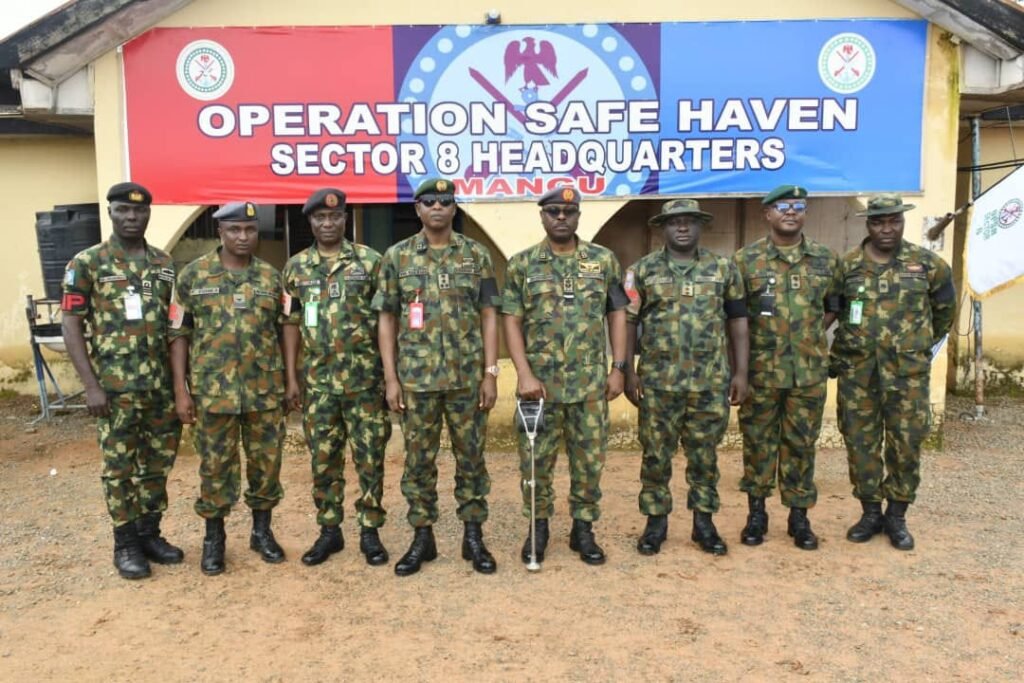In recent times, Plateau State Governor Caleb Mutfwang has increasingly expressed frustration over what he perceives as shortcomings by the Joint Security Task Force, code-named Operation Safe Haven (OPSH).
This multi-agency outfit was established to restore peace, maintain order, and ensure safety, not only in Plateau State but also in parts of Bauchi and Kaduna States.
While the dynamics of insecurity have evolved, with banditry largely overtaking the traditional farmer-herder clashes, the responsibility of restoring peace does not rest solely on the shoulders of OPSH personnel.
Instead of blaming or openly confronting the troops—especially for political gain, what they truly need is moral, psychological, and logistical support, particularly from those in positions of authority.
Unlike other states where governors have actively supported security agencies, Governor Mutfwang’s contribution in this regard has been minimal.

For instance, while Kaduna State, where OPSH operates in just six local government areas, has donated 8 operational Hilux vehicles, 45 motorcycles, and additional logistics, to boost troops morale, aide and ease operations, including quick response.
Plateau State, where OPSH operates across all 17 LGAs, has only managed to provide 15 motorcycles. Yet, criticism from the state leadership continues unabated.
The governor’s recent public rebuke of the Sector 6 Commander, widely regarded as hardworking, has been seen by many as unbecoming of responsible leadership.
Rather than undermining the efforts of security personnel, the Governor should be a symbol of unity and social justice.
The Mutfwang’s unlawful demand for the release of some youths alleged of killing a soldier, clearly shows another imbalance from a public figure that is so much anticipated to exhibit responsive leadership, Col. Thomas Paave, then Sector commander 6 Riyom, and his gallant troops should be commended by Mutfwang, but not harassed for simply discharging their onerous duty.
Again, the demand by the State Government on the Federal Government to withdraw soldiers is an indication of weakness of leadership, trying to undermine the sacrifice of the men and officers of the joint security taskforce.
It is evident that Col. Thomas Paave, have been redeployed from Sector 6 Riyom, and another Lt Col Isaac Indiorwhey, has been deployed, being the fourth in just a span of three months.
Reliable sources have confided that all the previous three Sector commanders, were deployed and redeployed based on their hardwork, but protest or agitation from the local community, has been the cause of their redeployment, and now the Mutfwang led administration has joined them in the agitations, showcasing yet another leadership lapses.
Governor Mutfwang should better understand that such agitation is not and will not be the best option-but social justice is.
It is undeniably inhumane to injure or kill innocent people under any guise. Equally unacceptable is the destruction of farmlands or theft of livestock, actions that continue to fuel a cycle of violence and reprisals.
However, many believe that the state government has shown visible bias, often siding with one group in the conflict while ignoring the pain and losses suffered by others.
The herding communities frequently feel marginalized by the government’s silence in the face of violence against them.
This perceived lack of fairness has undermined trust and led to growing resentment. Many view the Governor’s actions—including selective condemnation, palliative distribution, and public confrontations with security officers, as political manoeuvres designed to secure future electoral advantage, rather than genuine steps towards lasting peace.
Authored by Dan’Aseb Muhammad,
Public Affairs commentator.



